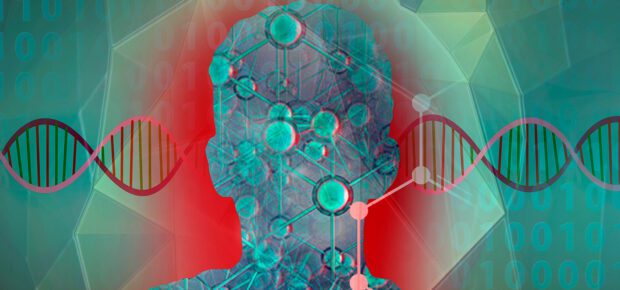April 24, 2025
Back in 2016, several luminaries in the AI space authored a report about the ways AI would impact humanity over the next 100 years. The authors posited what was then considered a shocking view on the future of work. AI, they said, would replace more tasks than jobs. Nearly a decade later, that view seems largely to have held.
But the workplace is changing. The rise of agentic AI in the workplace means that a new kind of professional agility is taking shape, one that blends machines’ autonomy with human judgment.
Here, IEEE Member Saptarshi Ghosh, IEEE Senior Members Eleanor Watson and Arpita Soni, and 2024 IEEE President Thomas Coughlin discuss how agentic AI in the workplace could shape career development and the strategies professionals can take to adapt.
In what specific ways will agentic AI most significantly augment the capabilities of professionals in the coming decade?
Ghosh: “Agentic AI excels at performing complex, multi-step tasks with minimal human oversight. These systems can maintain long-term goals, manage intricate processes and track progress over time while continuously adapting to changing conditions. By operating independently, AI agents free professionals from constant supervision of routine processes, allowing them to focus on higher-value strategic activities.”
How should career development programs evolve in response to increasingly autonomous AI in the workplace?
Watson: “Career development needs to evolve to match the speed at which AI is advancing. First, programs should focus on building uniquely human skills like creativity, emotional intelligence and critical thinking. Programs also need to support lifelong learning rather than just occasional certifications.
Interdisciplinary training is another key approach. For example, marketing professionals can benefit from learning data analytics, while engineers could study AI ethics. This crossover training ensures professionals are ready for roles that blend human judgment with AI-driven insights. Professionals can thereby remain influential as strategic partners entwined with AI.”
What unique skills or competencies should professionals develop to effectively collaborate with agentic AI systems?
Soni: “Career programs should emphasize and focus on collaboration with AI systems, particularly on integrating and promoting AI literacy. Professionals will still need to undergo training in technology like data analysis, problem-solving and requirement analysis to support the AI capabilities.”
What misconceptions do you see most frequently about the role of autonomous AI in the workplace, and how can businesses clarify these misunderstandings?
Coughlin: “The biggest and most dangerous misconception would be that AI can do the thinking for you. People need to develop critical thinking skills. Critical thinking is very valuable, as is the ability to recognize when an AI is making those mistakes.”
What concerns do you have about the growing use of AI in the workplace?
Watson: “There’s a growing concern around algorithmic management, where AI systems increasingly control and dictate workplace activities, potentially diminishing workers’ autonomy. Businesses must carefully avoid ‘robotizing’ jobs or unintentionally usurping human agency. Instead, AI should be introduced in ways that enhance and support human decision-making rather than replacing it.
Businesses can address this issue by openly discussing AI’s limitations, potential errors and the necessity of human oversight also builds realistic expectations and trust.”
Learn More: Peter Stone led the group that wrote the AI100 report released in 2016. The cohort of researchers tried to predict the ways that AI would influence people, community and societies, over the next century. He reflects on those predictions in a recent article for IEEE Intelligent Systems.





 Meaningful Momentum or Running in Place?
Meaningful Momentum or Running in Place? AI Through Our Ages
AI Through Our Ages Liquid Infrastructure: Our Planet's Most Precious Resource
Liquid Infrastructure: Our Planet's Most Precious Resource The Impact of Technology in 2025
The Impact of Technology in 2025 Quantum and AI: Safeguards or Threats to Cybersecurity?
Quantum and AI: Safeguards or Threats to Cybersecurity? Why AI Can't Live Without Us
Why AI Can't Live Without Us Bits, Bytes, Buildings and Bridges: Digital-Driven Infrastructure
Bits, Bytes, Buildings and Bridges: Digital-Driven Infrastructure Impact of Technology in 2024
Impact of Technology in 2024 Emerging AI Cybersecurity Challenges and Solutions
Emerging AI Cybersecurity Challenges and Solutions The Skies are Unlimited
The Skies are Unlimited Smart Cities 2030: How Tech is Reshaping Urbanscapes
Smart Cities 2030: How Tech is Reshaping Urbanscapes Impact of Technology 2023
Impact of Technology 2023 Cybersecurity for Life-Changing Innovations
Cybersecurity for Life-Changing Innovations Smarter Wearables Healthier Life
Smarter Wearables Healthier Life Infrastructure In Motion
Infrastructure In Motion The Impact of Tech in 2022 and Beyond
The Impact of Tech in 2022 and Beyond Cybersecurity, Technology and Protecting Our World
Cybersecurity, Technology and Protecting Our World How Technology Helps us Understand Our Health and Wellness
How Technology Helps us Understand Our Health and Wellness The Resilience of Humanity
The Resilience of Humanity Harnessing and Sustaining our Natural Resources
Harnessing and Sustaining our Natural Resources Creating Healthy Spaces Through Technology
Creating Healthy Spaces Through Technology Exceptional Infrastructure Challenges, Technology and Humanity
Exceptional Infrastructure Challenges, Technology and Humanity The Global Impact of IEEE's 802 Standards
The Global Impact of IEEE's 802 Standards Scenes of our Cyber Lives: The Security Threats and Technology Solutions Protecting Us
Scenes of our Cyber Lives: The Security Threats and Technology Solutions Protecting Us How Millennial Parents are Embracing Health and Wellness Technologies for Their Generation Alpha Kids
How Millennial Parents are Embracing Health and Wellness Technologies for Their Generation Alpha Kids Space Exploration, Technology and Our Lives
Space Exploration, Technology and Our Lives Global Innovation and the Environment
Global Innovation and the Environment How Technology, Privacy and Security are Changing Each Other (And Us)
How Technology, Privacy and Security are Changing Each Other (And Us) Find us in booth 31506, LVCC South Hall 3 and experience the Technology Moon Walk
Find us in booth 31506, LVCC South Hall 3 and experience the Technology Moon Walk Virtual and Mixed Reality
Virtual and Mixed Reality How Robots are Improving our Health
How Robots are Improving our Health IEEE Experts and the Robots They are Teaching
IEEE Experts and the Robots They are Teaching See how millennial parents around the world see AI impacting the lives of their tech-infused offspring
See how millennial parents around the world see AI impacting the lives of their tech-infused offspring Take the journey from farm to table and learn how IoT will help us reach the rising demand for food production
Take the journey from farm to table and learn how IoT will help us reach the rising demand for food production Watch technical experts discuss the latest cyber threats
Watch technical experts discuss the latest cyber threats Explore how researchers, teachers, explorers, healthcare and medical professionals use immersive technologies
Explore how researchers, teachers, explorers, healthcare and medical professionals use immersive technologies Follow the timeline to see how Generation AI will be impacted by technology
Follow the timeline to see how Generation AI will be impacted by technology Learn how your IoT data can be used by experiencing a day in a connected life
Learn how your IoT data can be used by experiencing a day in a connected life Listen to technical experts discuss the biggest security threats today
Listen to technical experts discuss the biggest security threats today See how tech has influenced and evolved with the Games
See how tech has influenced and evolved with the Games Enter our virtual home to explore the IoT (Internet of Things) technologies
Enter our virtual home to explore the IoT (Internet of Things) technologies Explore an interactive map showcasing exciting innovations in robotics
Explore an interactive map showcasing exciting innovations in robotics Interactively explore A.I. in recent Hollywood movies
Interactively explore A.I. in recent Hollywood movies Get immersed in technologies that will improve patients' lives
Get immersed in technologies that will improve patients' lives